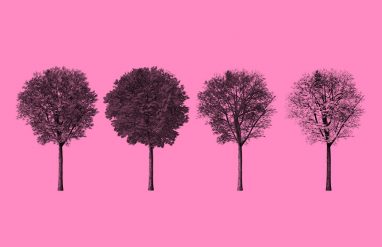The words worse and worst are extremely useful. They are the main and often best way we can indicate that something is, well, more bad or most bad. But because they look and sound so similar, it can be easy to mix them up, especially in certain expressions.
In this article, we’ll break down the difference between worse and worst, explain how they relate to comparative and superlative adjectives (and what those are), and clear up confusion around which word is the correct one to use in some common expressions.
⚡ Quick summary
Worse and worst are both forms of the word bad. Worse is what’s called the comparative form, basically meaning “more bad.” Worst is the superlative form, basically meaning “most bad.” Worse is used when making a comparison to only one other thing: Your breath is bad, but mine is worse or The situation was bad and it just got worse. Worst is used in comparisons of more than two things: Yours is bad, mine is worse, but his is the worst or That was the worst meal I’ve ever eaten.
worse vs. worst
Worse and worst are different words, but both are forms of the adjective bad. Worse is the comparative form and worst is the superlative form.
A comparative adjective is typically used to compare two things. For example, My brother is bad at basketball, but honestly I’m worse.
A superlative adjective is used to compare more than two things (as in Out of the five exam I have today, this one is going to be the worst) or state that something is the most extreme out of every possible option (as in That was the worst idea I have ever heard).
Worse and worst are just like the words better and best, which are the comparative and superlative forms of the word good.
In most cases, the comparative form of an adjective is made by either adding -er to the end (faster, smarter, bigger, etc.) or adding the word more or less before it (more impressive, less powerful, etc.).
To form superlatives, it’s most common to add -est to the end of the word (fastest, smartest, biggest, etc.) or add most or least before it (most impressive, least powerful, etc.).
Worse and worst don’t follow these rules, but you can see a remnant of the superlative ending -est at the end of worst and best, which can help you remember that they are superlatives.
Worse is used in the expression from bad to worse, which means that something started bad and has only deteriorated in quality or condition, as in My handwriting has gone from bad to worse since I graduated high school.
Let’s look at some other common questions people have about expressions that use worse or worst.
Is it worse case or worst case?
The phrase worst case is used in the two idiomatic expressions: in the worst case and worst-case scenario. Both of these phrases refer to a situation that is as bad as possible compared to any other possible situation, which is why it uses the superlative form worst.
For example:
- In the worst case, the beams will collapse instantly.
- This isn’t what we expect to happen—it’s just the worst-case scenario.
While it’s possible for the words worse and case to be paired together in a sentence (as in Jacob had a worse case of bronchitis than Melanie did), it’s not a set expression like worst case is.
Is it if worse comes to worst or if worst comes to worst?
There are actually two very similar versions of the expression that means “if the worst possible outcome happens”: if worse comes to worst or if worst comes to worst. However, if worst comes to worst is much more commonly used (even though it arguably makes less sense).
Whatever form is used, the expression is usually accompanied by a proposed solution to the problem. For example:
- If worse comes to worst and every door is locked, we’ll get in by opening a window.
- I’m going to try to make it to the store before the storm starts, but if worst comes to worst, I’ll at least have my umbrella with me.
Examples of worse and worst used in a sentence
Let’s wrap things up by looking at some of the many different ways we can use worse and worst in a sentence.
- I think the pink paint looks worse on the wall than the red paint did.
- Out of all of us, Tom had the worst case of poison ivy.
- Debra Deer had a worse finishing time than Charlie Cheetah, but Sam Sloth had the worst time by far.
- My grades went from bad to worse after I missed a few classes.
- If worst comes to worst and we miss the bus, we’ll just hail a cab.
- It’s possible that the losses could lead to bankruptcy, but the company is doing everything it can to avoid this worst-case scenario.
Hope for the best as you take this quiz
How do you feel about the difference between worst and worse now that you’ve reviewed them? If you can distinguish between the comparative and superlative forms of bad, take this quiz to see how much you’ve learned.














